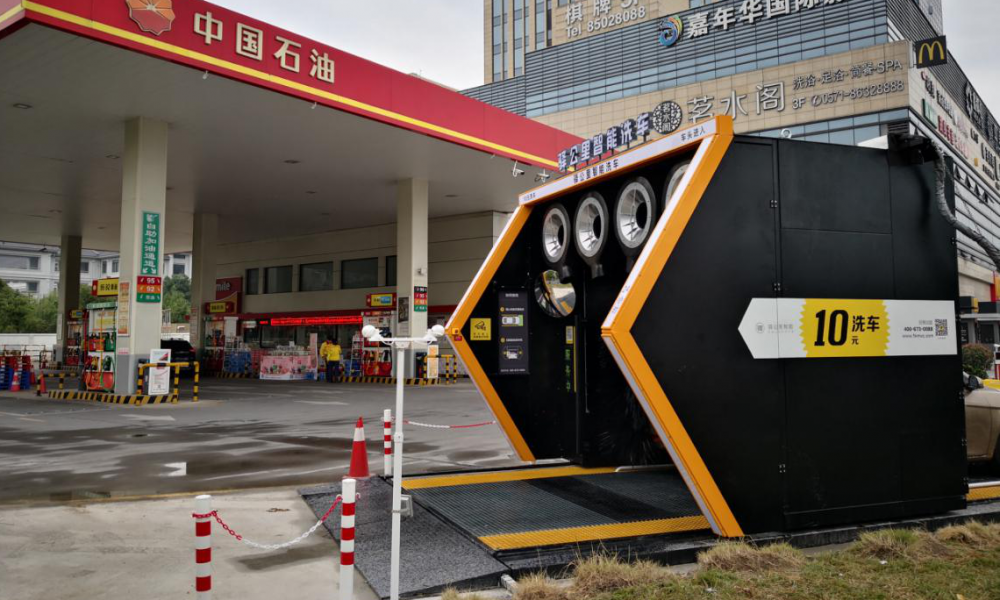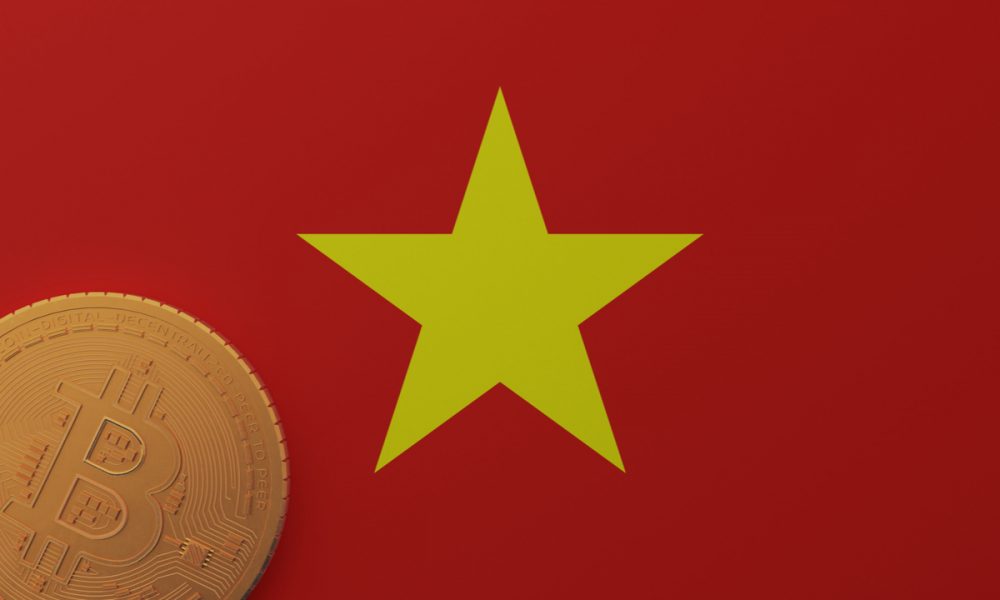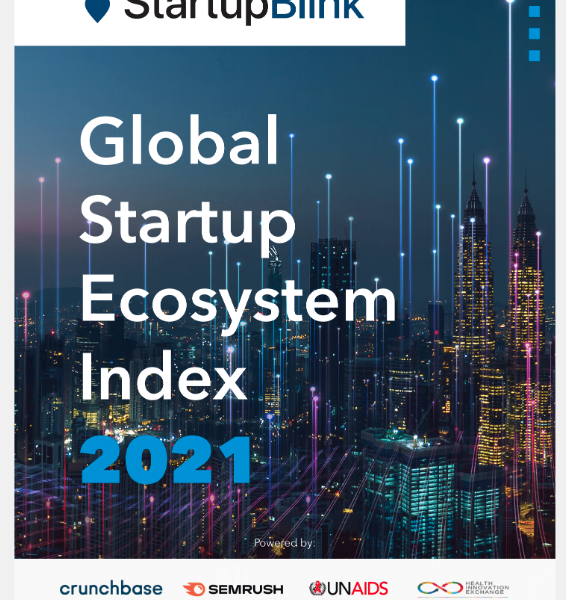Author: Kai Wern Chan
Unicorn Status For Chinese Car Wash Firm YGL Backed By Alibaba
Self-service car wash company Yigongli (YGL), a startup developed by Shanghai HELIOS Network Technology and backed by Alibaba has recently joined China’s latest unicorn status with a value of over $1 billion. The “hundreds of millions of U.S. dollars” worth of transaction is raised across two tranches of Series D1 and Series D2 rounds.
Series D1 round of transaction is called from Sigma Delta Partners Investment, which focuses on prime properties in China’s Tier I cities such as Shanghai, Beijing, Shenzhen, and Guangzhou. Further on, the startup company mentioned that Sigma Delta Partners Investment is expected to help leverage its real estate potentials in order to acquire new locations for YGL’s facilities.
Meanwhile, the Series D2 round was said to be from the investment and advisory services unit of Goldman Sachs’, Goldman Sachs Asset Management. The sub-unit of Goldman Sachs will be an anchor in terms of YGL’s global expansion, as well as an attraction for high-end talent.
YGL was established in 2014, Hangzhou as an unmanned 24/7 car wash business that also offers after-sales solutions and products. The new unicorn has now conquered the operations of over 2,500 car wash stations near auto repair shops, gas stations, office buildings, supermarkets, and parking lots across 138 cities in China alone.
It is said that YGL has plans to utilize the financing to boost its automation landscape along with the R&D of self-driving technology. This also adds to the fact that in its latest Series C round of capital financing, the startup has obtained an estimate of $92.8 million across three tranches.
Series C round is from companies including a state-owned insurer People’s Insurance Company of China, private equity fund Centurium Capital, and ClearVue Partners.
Vietnam to Asses Cryptocurrency Development Through Central Bank
Nikkei Asia reported that the government of Vietnam has assigned its central bank in the R&D of its very own blockchain-based digital currency. The policy came forth in Prime Minister Nguyen Xuan Phuc’s Decision 942, which outlined the government’s approach to digitalizing the country with virtual currency based on blockchain technology by 2030.
According to Nikkei, Binh Nguyen Thanh, a coordinator at RMIT University Vietnam’s FinTech-Crypto Hub, said that the government authorities will have more control over the virtual money than having it be left to decentralized software and private enterprises. Thanh quoted, “I think they will look at how the experiment in other countries goes.” As back in October 2020 last year, Cambodia launched a state-backed digital coin called “Bakong,” while neighboring countries like Cina and Thailand are reported to have similar thoughts.
He further explained that in Vietnam, cryptocurrency is as it is, will remain in the grey area of an obscured regulation. Dabbling in bitcoin and applying it as a means of payment is a violation of the law and may be subjected to administrative or criminal sanctions.
5 Countries in Asia-Pacific Ranked in Global Startup Ecosystem Index 2021 Top 20
The Global Startup Ecosystem Index has provided valuable and comprehensive insights consistently every year on the startup ecosystem in 100 countries, and 1000 cities globally since 2017 by StartupBlink.
According to the 2021 index released recently, the first Asian country to be on top of the startup ecosystem is China, skipping 7 positions to rank at 7 globally. China has evidently joined the world’s top 10, with Beijing becoming the world’s 3rd highest-ranked startup ecosystem (ranking of countries and cities are calculated differently). It is also reported that China ranks at 4th place in its global Quality score.
Directly quoted from the StartupBlink report, the Quality score is the “presence of 130 global startup influencers with impact reaching far beyond their local ecosystem.”
Coming up 2nd in the Asia-pacific region is Australia, which has actually dropped in rank by 2 spots compared to last year, from 7th to 9th. The country’s most influential and high-performing industry is E-commerce & Retail Technology, where it is in 3rd place worldwide.
Second in Asia and 3rd in Asia-pacific, Singapore has been pushed up to the top 10 placement is Singapore, jumping 6 places up since last year to the 10th place in 2021. It was further reported that China and Singapore were the first batches of Asian countries to have been represented on the global top 10 list.
Lastly, to capture all the Asian countries that were ranked in the top 20 placement in this year’s Global Startup Ecosystem Index, South Korea and India were introduced at the 19th and 20th spot respectively. Moreover, South Korea has also added 5 new cities to the top 1000 ranking for cities.
As for India, the country has finally bounced back to the top 20 after dropping 6 spots in 2020. India has regained its ranking by 3 spots to re-enter the global top 20.
Alibaba Cloud Plans to Invest US$1bn in Asia Pacific Countries in Support of Developing Talent Pool
Alibaba subsidiary, Alibaba Cloud announced its plans to invest USD $1billion across several Asia Pacific countries in developing a digital talent pool and empower the growth of 100,000 startups in the technological field. Current disclosed countries to be involved in the investment plans are Malaysia, the Philippines, Indonesia, and Singapore.
The investment strategy is part of Alibaba Cloud’s AsiaForward core project, DigiTalents Forward with a focus on infrastructure, technological innovation, and talent development to help in the economic growth of the local arena. AsiaForward has two more projects under its wing being AI Forward, and DigiEntrepreneurs Forward.
Alibaba will partner with Handsprofit, Malaysia in developing its very first international innovation centre in the country. This will become an opportunity for Malaysian startups, and SMEs a platform for innovation opportunities. The platform will be offering various cloud technology, leadership training, and venture capital networking.
The data centre investment in Indonesia will be the third launch by Alibaba Cloud that offers database, security, network, machine learning, and data analytics services. It is mentioned that the new centre allows better support for local businesses in adopting cloud technology and encourages Indonesia’s push for a digital community.
As for development in the Philippines, the first data centre is estimated to be launched by end of 2021. Similar to the development plans of Malaysia and Indonesia, it will be a huge support for the digitalization of local businesses through services such as elastic compute service, database, global network solution, content delivery network, and storage services. This establishes Alibaba Cloud’s stand on prioritizing the country’s banking, fintech, retail, logistics, education sectors, and others.
In Singapore, Alibaba Cloud plans a kick-off of the DigiTalents Forward program. This is said to be a collaboration with Singapore’s School of Computer Science and Engineering, and NTU-Alibaba Singapore Joint Research Institute at the Nanyang Technological University. Programs will include the focus of various AI courses under NTU’s MiniMasters program.
Indonesia’s GoTo Group Plans Fundraising Before IPO Launch In 2021
Last week, two of Indonesia’s largest startup companies, Gojek and Tokopedia confirmed that they will be merging to form GoTo Group with a deal of US$18 billion to US$22 billion. The merger is said to be Indonesia’s largest with a combined entity of over 100 million monthly active users, 11 million merchant partners, and more than 2 million registered drivers.
GoTo was reported to have registered a transaction of more than 1.8 billion in the year 2020 and together, conquered 2% of Indonesia’s GDP. Moreover, both companies’ executives explained that the plan to implement the merge as a strategy to compete with the two Southeast Asian giants, Grab and Shopee.
With Shopee’s recent launch of its food-delivery feature in Indonesia this year, it became a direct competition with Tokopedia for Indonesia’s market share.
After the announcement of the merger, GoTo Group proclaimed its plans to start a round of fundraising before its initial public offering (IPO) launch before the end of this year. Moving on, during the talk with financial institutions and sovereign wealth funds, GoTo emphasized its scheme to use Gojek as means of transport for Tokopedia packages for customers paid with the group’s e-wallet.
The merge creates shared data resources and customer that makes their services more efficient and cheaper throughout the country. User engagement is also expected to increase with its services after assembling more into one single app, GoPay.
Some people familiar with the merger claimed that an estimate of US$40 billion could be reflected on Gojek and Tokopedia’s recent financial performance. Subsequently after the merge, the two companies, Gojek and Tokopedia will remain in operation as a separate unit under the GoTo Group.





